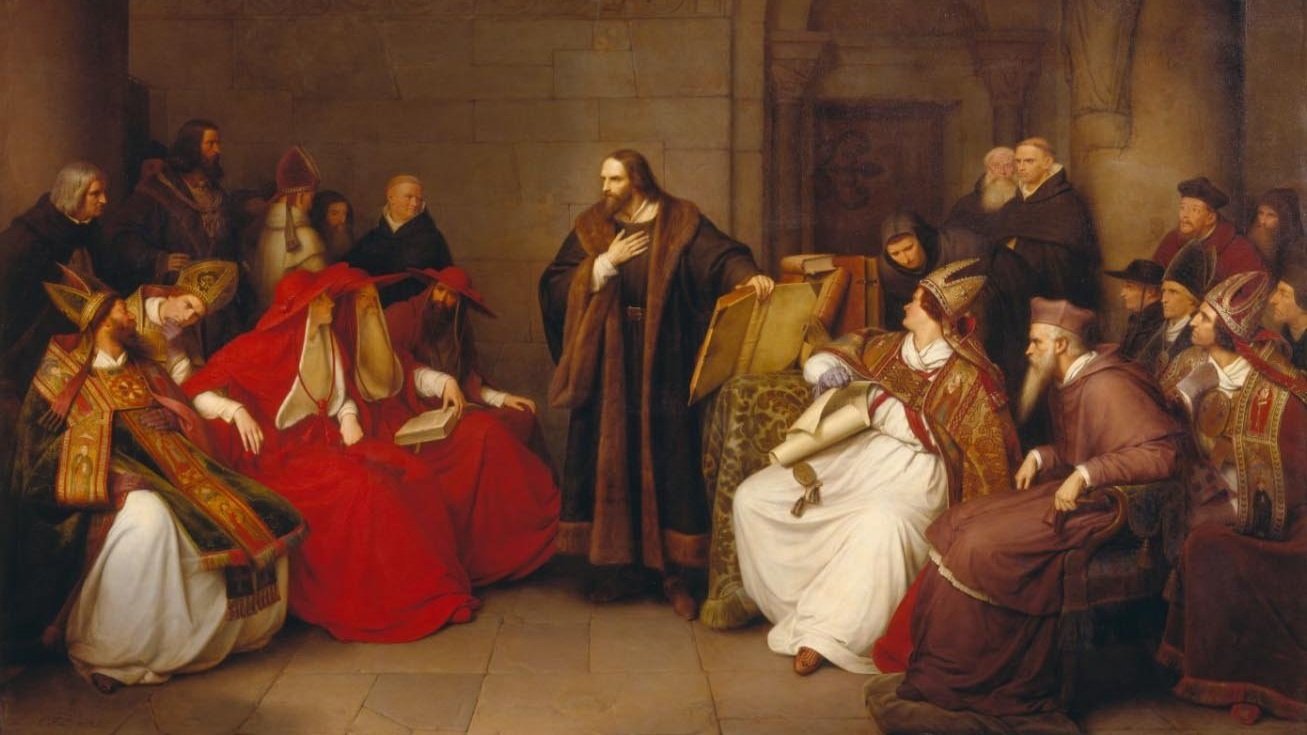
Moravian heritage traces its roots to Jan Hus, a Czech Roman Catholic priest and rector of the University of Prague in the early 1400s. His teachings are considered a key predecessor to the Protestant Reformation a hundred years following his death (burning at the stake) in July of 1415. The painting shown above by Carl Lessing, dated 1842, depicts Hus defending his teachings at the Council of Constance in 1415.
Ironically, in the centuries following his trial, at which he refused to recant his teachings, all of the recommendations were adopted. He advocated the four reforms:
Worship in the language of the people (instead of Latin) so all could hear and understand the word of God.
Scripture is the norm for faith and practice.
In Communion, the wine should be given to all, instead of only priests, which had created a class distinction within the church.
The clergy needed to live the gospel rather than telling the laity (their congregants) to do so.
Moravians promoted equal education for women and were the first to include pictures in books so children could learn and engage in the practice of their faith at an early age. In missions, Moravians went where no others would go. They believed in living with the people they served and that their lives and actions, not words, bore witness to their faith.
The Messiah Moravian Church community members consider themselves the inheritors and beneficiaries of these progressive, enlightened, and courageous followers of Christ.